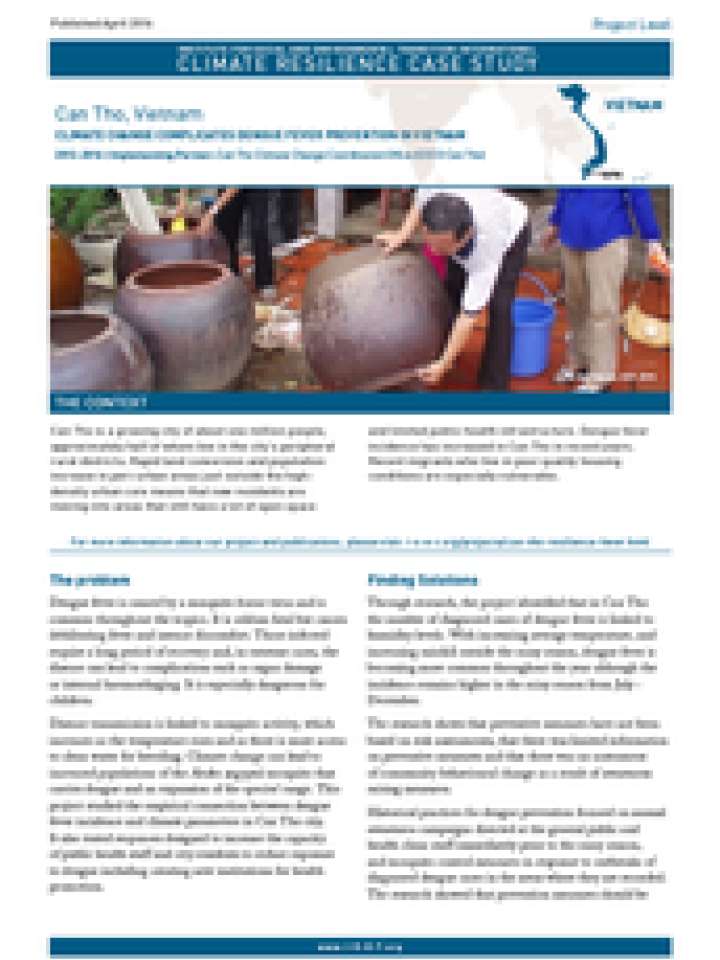Vietnam: Climate change complicates Dengue fever prevention in Can Tho
This case study illustrates how local level education and a focus on prevention can have powerful effects in reducing the prevalence of Dengue. Can Tho in Vietnam is a growing city with an increasing number of residents living in peri-urban areas.
These are the lessons for policy and practice:
- Community-based monitoring and awareness and prevention practices for dengue fever are important as climate change leads to greater mosquito activity in the Mekong Delta.
- Surveillance methods should include multiple indicators of dengue risk in order to focus preventive measures in areas where risks are higher.
- Larval monitoring is critical to enable timely and targeted mosquito control.
- These methods require the engagement of community actors and other city agencies (e.g. Department of Education, ward officials) in addition to Department of Health staff.
- Health clubs can serve an important role in community development and promoting health outcomes, including dengue fever prevention.
Explore further
